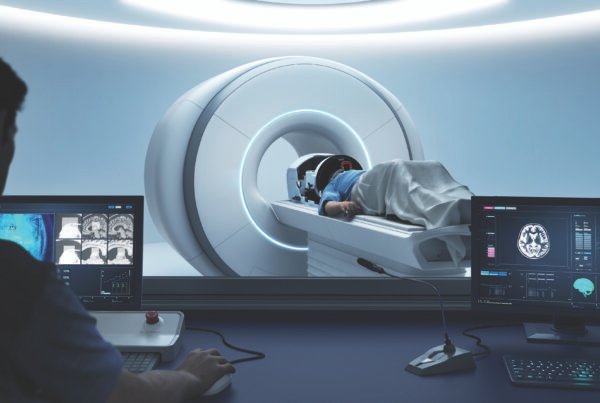The realm of neurosurgery is on the brink of a new era, marked by remarkable innovations and advanced treatments that promise to redefine patient care. As we look toward the future, we see a landscape where technology and medicine converge to create more effective, less invasive, and more personalized treatment options for neurological conditions. This article explores the cutting-edge advancements poised to transform neurosurgery.
- Minimally Invasive Procedures: The shift towards minimally invasive surgery has been gaining momentum. Techniques such as endoscopic brain surgery allow neurosurgeons to access affected areas of the brain through smaller incisions, reducing the risk of complications, minimizing pain, and allowing for faster recovery times.
- Neuro-Robotic Surgery: Robotic systems are becoming more prevalent in neurosurgery, providing enhanced precision and stability during procedures. Surgeons can manipulate robotic arms for delicate tasks, reducing the risk of human error. Additionally, robotics is paving the way for remote surgery, where specialists can operate on patients over long distances.
- Advanced Brain Imaging: New imaging technologies offer unprecedented views of the brain’s structure and function. Techniques like High-Definition Fiber Tracking (HDFT) and functional MRI (fMRI) provide detailed images of nerve fiber pathways and brain activity, respectively. These advancements allow for more accurate diagnoses and personalized surgical planning.
- Neuromodulation and Deep Brain Stimulation (DBS): DBS and other neuromodulation techniques are evolving rapidly. These methods involve implanting a device that sends electrical impulses to specific brain areas, offering therapeutic benefits for conditions like Parkinson’s disease, epilepsy, and even depression. Future innovations are expected to improve the adaptability and specificity of these devices.
- Regenerative Medicine: The field of regenerative medicine, including stem cell therapy, holds the potential to repair damaged brain tissue and nerves. While still in the experimental stages, these treatments could revolutionize the management of neurodegenerative diseases and traumatic brain injuries.
- Artificial Intelligence (AI) in Neurosurgery: AI and machine learning are making inroads into neurosurgery, assisting in diagnostic processes, surgical planning, and even predicting patient outcomes. By analyzing vast datasets, AI can identify patterns and provide insights that inform treatment decisions.
- Virtual Reality (VR) and Augmented Reality (AR): VR and AR are valuable tools for education, preoperative planning, and patient communication. Surgeons can use these technologies to visualize complex procedures in a 3D space, enhancing their understanding and precision during surgery.
Our Service’s Commitment
In this exciting new chapter of neurosurgery, our platform remains committed to embracing innovation. We understand the transformative power of advanced treatments and technologies, and we strive to make them accessible to our patients. By connecting individuals with leading specialists and cutting-edge facilities, we ensure our patients are at the forefront of neurological care.
The future of neurosurgery is bright, characterized by continual learning, adaptation, and technological advancement. These innovations are not just enhancing the technical aspects of neurosurgery; they are amplifying the human element, providing hope, and improving the quality of life for patients worldwide. In this journey toward the future, our service stands as a bridge, linking patients with the revolutionary treatments of tomorrow, today.
Discover More with Healwise

Can’t find a good doctor locally to treat your neurological condition?
Healwise gives you top neurosurgery expert recommendations in nearby countries, and supports you from start to finish. All at no extra cost to you.





